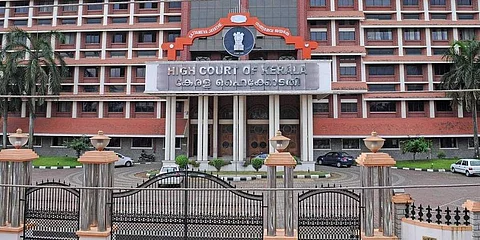

At a time when the controversy over wearing hijab in schools rages, an order issued by the Kerala High Court on the issue in 2018 has now become a point of discussion. While dismissing the petitions filed by two Muslim girl students seeking permission to wear a headscarf as well as full sleeve shirts in their school, the Kerala High Court had observed that it cannot instruct an educational institution to consider the requests of students. "It was purely within the domain of the institution to decide on the dress code," the ruling by Justice A Muhamed Mustaque had observed.
The Kerala HC order was highlighted by the lawyers representing both the petitioners and the Karnataka government during the argument in the Hijab case at the Karnataka High Court to substantiate their arguments. The Karnataka government had also cited the Kerala HC's order in its recent order against the practice of wearing hijab in schools.
Sanjay Hegde, senior advocate who appeared for the petitioners against the government order, also pointed out the Kerala HC's order and submitted that the order was in the context of a private institution and perhaps, also a Christian minority institution. "The court was balancing fundamental rights. Here, this is a government institution, which belongs to every inhabitant of Karnataka and citizen of India," the advocate said.
Explaining the context of the Kerala HC order, Supreme Court lawyer Kaleeswaram Raj told TNIE that the question of whether the hijab is an essential part of Islam was answered by Justice Muhamed Mustaque only in the judgment in Amnah Bint Basheer vs CBSC and others (2016). "This point was not directly dealt with in his subsequent verdict in Fathima Thasneem's case (2018), which gave free hand to the private school management in the matter of uniform," he said.
Justice A Muhamed Mustaque in 2018 held that the students cannot seek the imposition of their individual right as against the larger right of the institution to impart education. It is for the institution to decide whether the student can be permitted to attend the classes with the headscarf and full sleeve shirt. It is purely within the domain of the institution to decide on the same. The court had added that if the petitioners approach the institution for a Transfer Certificate, the school authority shall issue a Transfer Certificate without making any remarks.
Commenting on the 2018 Kerala order, T Asaf Ali, former Director-General of Prosecution, said every judgment depends on the facts of the case. "It may vary from case to case and can't be considered as a final one," he said.
